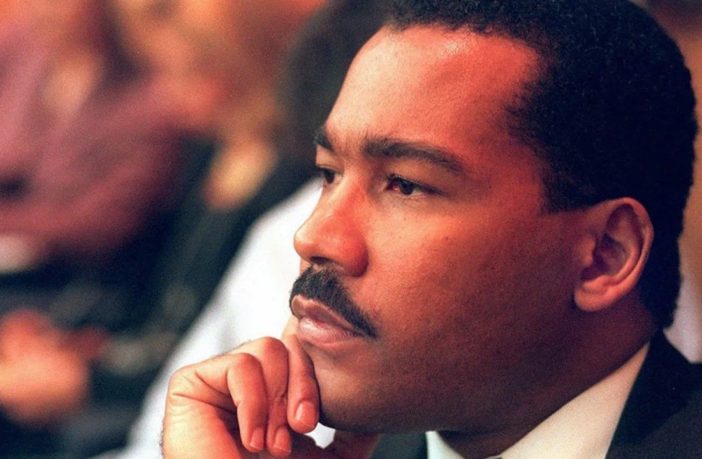Dexter Scott King, the youngest son and third child of Dr. Martin Luther King, Jr. and Coretta Scott King, has died, according to an announcement by The King Center.
The Center added that King died on Jan. 22 at the age of 62 after a “valiant battle with prostate cancer.”
“He transitioned peacefully in his sleep at home with me in Malibu,” said his wife, Leah Weber King. “He gave it everything and battled this terrible disease until the end. As with all the challenges in his life, he faced this hurdle with bravery and might.”
“Words cannot express the heartbreak I feel from losing another sibling,” said his sister Rev. Dr. Bernice A. King, CEO of The King Center. “I’m praying for strength to get through this very difficult time.”
His brother Martin Luther King, III also expressed words of grief mixed with disbelief.
‘‘The sudden shock is devastating,” he said. “It is hard to have the right words at a moment like this. We ask for your prayers at this time for the entire King family.”
Born in Atlanta on Jan. 30, 1961, he was named after Dexter Avenue Baptist Church in Montgomery, Alabama, where his father served his first pastorate. Dexter King was only seven years old when his father was assassinated in 1968 in Memphis.
Like his father, Dexter King was a Morehouse man and grew up in Atlanta’s Ebenezer Baptist Church where his father and grandfather pastored.
At the time of his death, Dexter served as both Chairman of The King Center and President of the King Estate. Becoming well versed in intellectual property law, and its management and licensing was the result of his dedication to the delegated task and the memory of both his father and mother.
Rev. Al Sharpton said he was “heartbroken to hear that Dexter King left us this morning, but I was comforted by the knowledge he is reunited with his parents and sister.”
Dexter’s mother, Coretta Scott King, died in 2006. His sister Yolanda Denise King died in 2007.
Atlanta Mayor Andre Dickens also expressed his condolences to Dexter’s family.
“His profound and unwavering love for his family positioned him as a guardian of his father and mother’s legacies,” the mayor said of Dexter in a news release.
Reverend Ronald Galvin, a graduate of Emory University’s Candler School of Theology in Atlanta, and a global activist well-versed in MLK’s message and mission, had his own prostate cancer journey – one he thankfully survived.
Galvin shared words of advice for Black men who are most prone to suffer from prostate cancer.
“The first thing is get checked. Brothers, we should be getting regular visits to the doctor anyway. Do not put it off. Matter of fact, we’re still in the wake of a global pandemic where everybody’s health has been compromised,” said Galvin.
“Second thing; at least once a year, and if you have a history of cancer or prostate cancer in particular in your family, maybe more than once a year, please get your prostate checked,” he added.
Galvin suggests getting your prostate checked two ways. One is through the PSA which measures your blood level. The other is via a digital exam that checks to see if there are any lumps on the actual prostate.
“Brothers all get nervous about the digital exam. It takes three seconds. And three seconds could save your life and save your quality of life,” shared Galvin whose prostate condition was diagnosed early.
Galvin also shared words of encouragement.
“And then third, if you find that you are diagnosed with prostate cancer, you don’t have to go through it by yourself. Be in solidarity and rally up with your partner and your family. But there are also other brothers and men at large who’ve done this, who have beautiful quality of lives and who would be wide open to be in community with you, walk with you, and talk to you. And I think that’s the most important thing. Find a community that can walk with you.
Other than skin cancer, prostate cancer is the most common cancer in American men. The American Cancer Society’s estimates for prostate cancer in the United States for 2023 are:
About 288,300 new cases of prostate cancer
About 34,700 deaths from prostate cancer
According to the ACS, about one man in eight (12.5%) will be diagnosed with prostate cancer during his lifetime. However, Prostate Cancer UK (PCUK), a registered charity in England, reports that one in four Black men (25%) will get prostate cancer in their lifetime.
According to PCUK, you may be more likely to get prostate cancer as a Black man if:
You are aged 45 or over – and your risk increases as you get older
Your father or brother has had it
Your mother or sister has had breast cancer
Prostate cancer is the second leading cause of cancer death in American men, behind only lung cancer. About one man in 41 will die of prostate cancer.
“Prostate cancer can be a serious disease, but most men diagnosed with prostate cancer do not die from it,” states the ACS website (www.cancer.org). “In fact, more than 3.1 million men in the United States who have been diagnosed with prostate cancer at some points are still alive today.”



